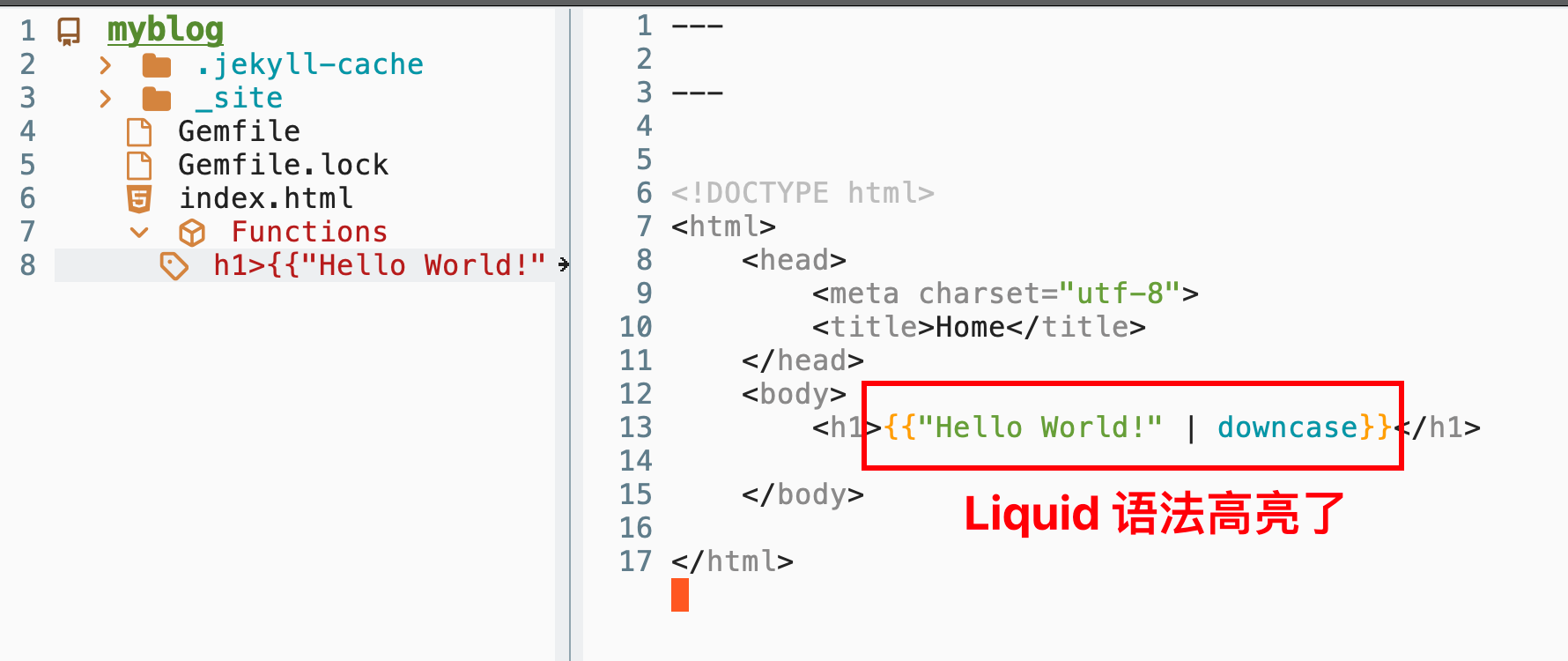⭐️ Emacs下如何配置web-mode下对jekyll的支持
最终效果
因为如果直接打开 .html 的话, web-mode 检测到 html 文件,但是不会对Liquid 语法做处理
但如果更改后缀,比如 .djhtml,.tmpl 那么又会失去对html 本身的支持。
这时候需要我们配置 mode + engine
A specific engine can be forced with web-mode-engines-alist.
1
2
3
4
(setq web-mode-engines-alist
'(("php" . "\\.phtml\\'")
("blade" . "\\.blade\\."))
)
Using this association list is required as soon as the file extension is unknown (by web-mode) or is too general (e.g. .html). In summary, you may have to set both auto-mode-alist and web-mode-engines-alist. Since the version v10, you can also put a fragment like -- engine:ENGINE_NAME -*- in a comment at the beginning of your template (web-mode-enable-engine-detection must be set to t in your .emacs)
1
2
<?php /* -*- engine:php -*- */ ?>
<span><?=$x?></span>
使用-*- engine:ENGINE_NAME -*- 方法看来是最方便的,但是有一个问题是,jekyll需要使用front matter,这导致首行如果添加了这个comment的话,jekyll解析就有点问题
所以我现在的解决方法还是hook
我这里检测是不是jekyll项目的逻辑主要是当前项目中是不是有Gemfile.lock以及这个文件中有没有jekyll依赖
1
2
3
4
5
6
7
8
9
10
11
12
13
14
15
16
17
18
19
20
21
22
23
24
25
26
27
28
(defun web-mode/treesit-parser-hook ()
"Create a Tree-sitter parser based on the file extension and project type."
(let ((file-name (buffer-file-name)))
(when file-name
(let* ((extension (file-name-extension file-name))
(gemfile-lock-path (locate-dominating-file default-directory "Gemfile.lock"))
(is-jekyll-project
(when gemfile-lock-path
(with-temp-buffer
(insert-file-contents (expand-file-name "Gemfile.lock" gemfile-lock-path))
(search-forward "jekyll" nil t))))
(language (pcase extension
("vue" 'vue)
("djhtml" 'htmldjango)
("tmpl" 'liquid)
("html" (if is-jekyll-project 'liquid 'html))
("php" 'php))))
(if is-jekyll-project
(add-to-list 'web-mode-engines-alist '("liquid" . "\\.html\\'"))
(setq web-mode-engines-alist
(cl-remove-if (lambda (x) (equal x '("liquid" . "\\.html\\'")))
web-mode-engines-alist)))
(when language
(treesit-parser-create language))
(message "using...%s" language)))))
(add-hook 'web-mode-hook #'web-mode/treesit-parser-hook)
